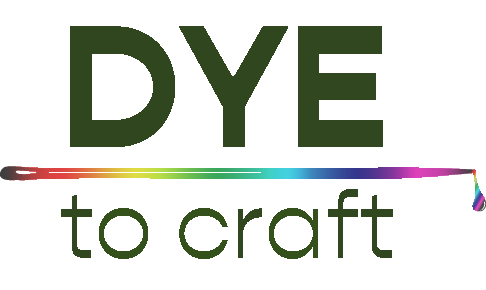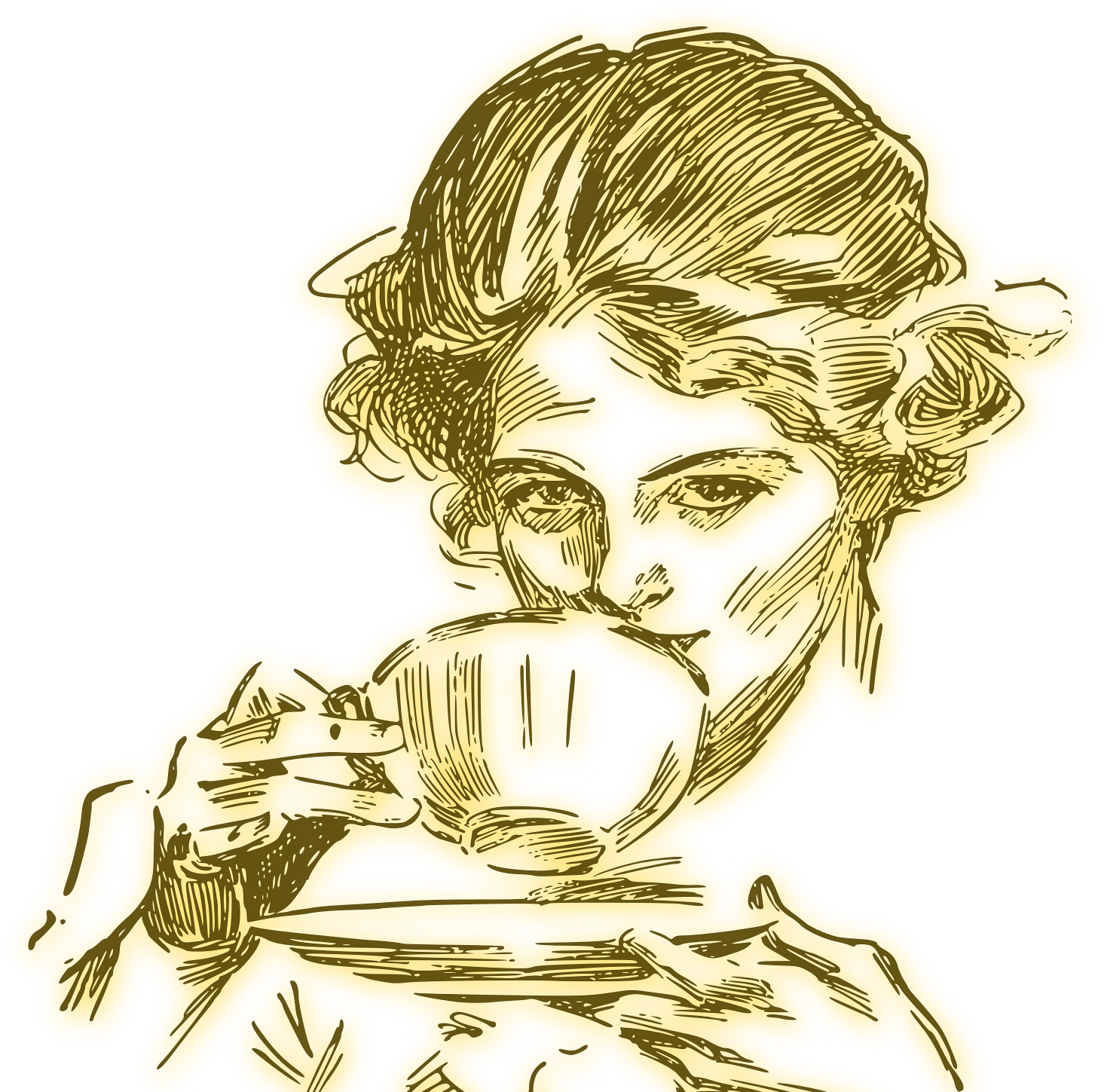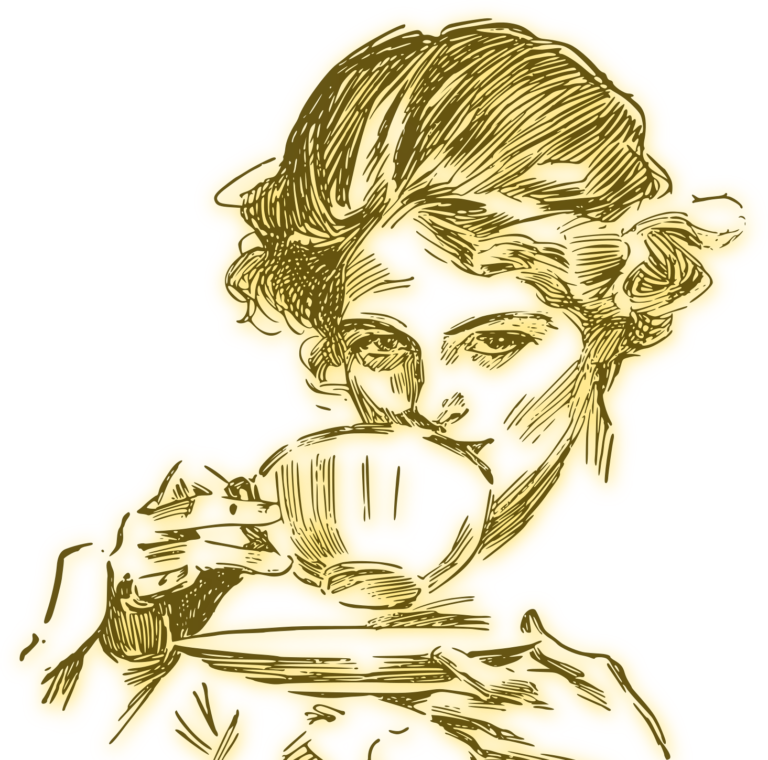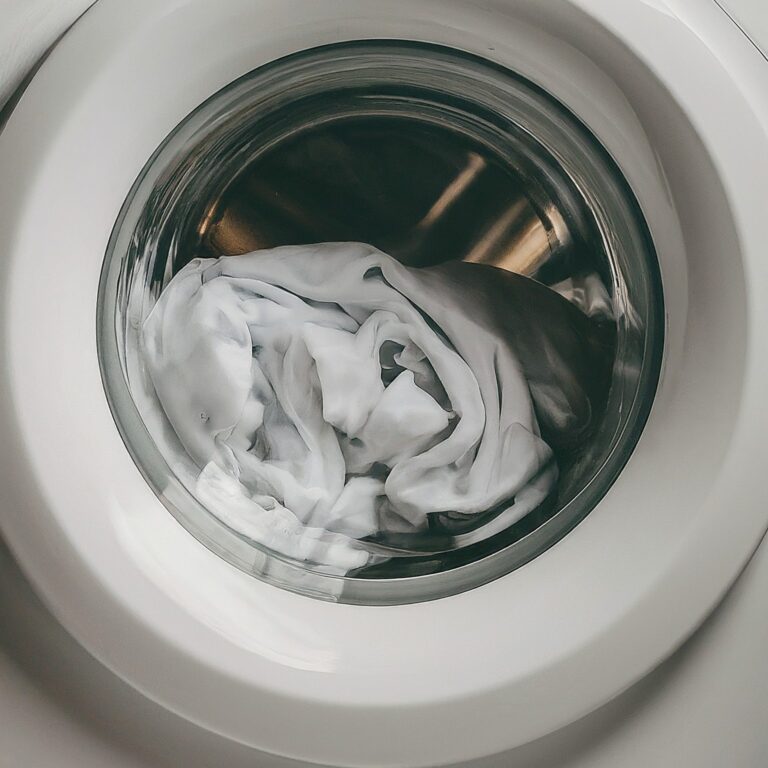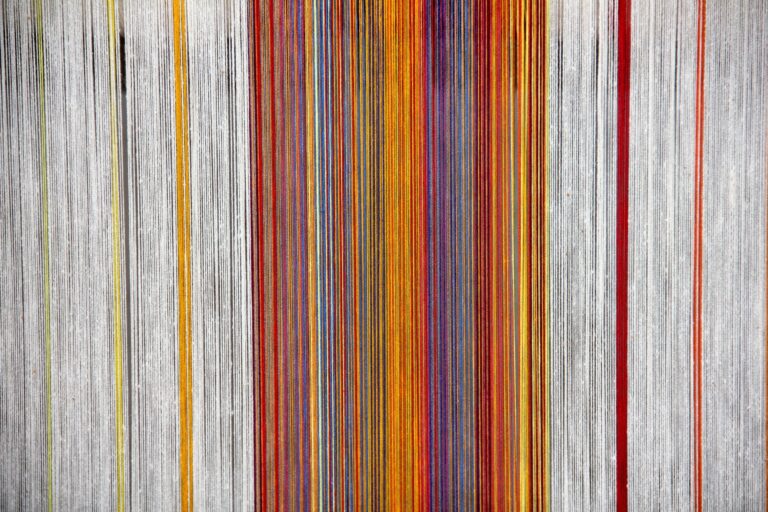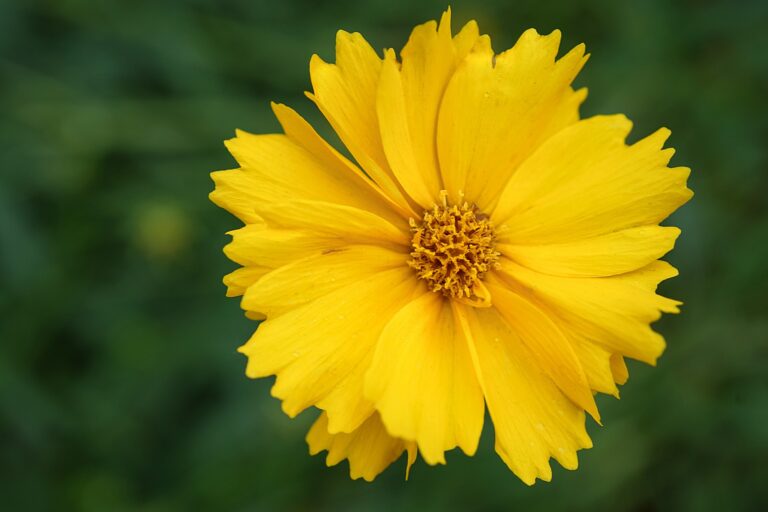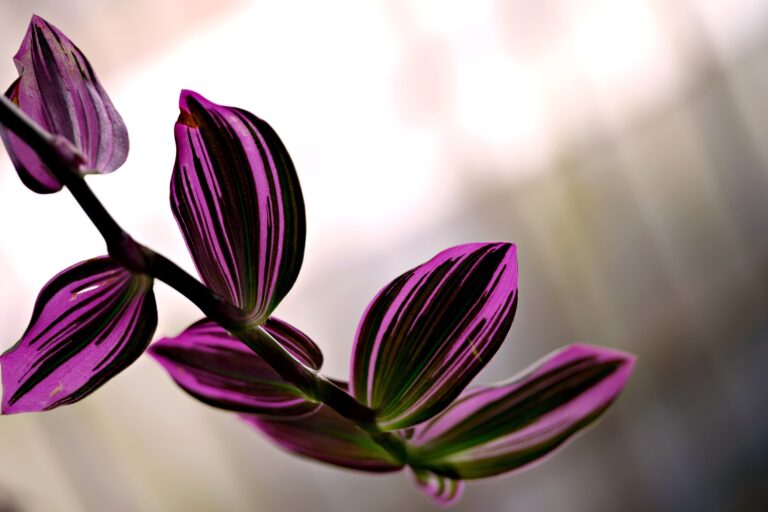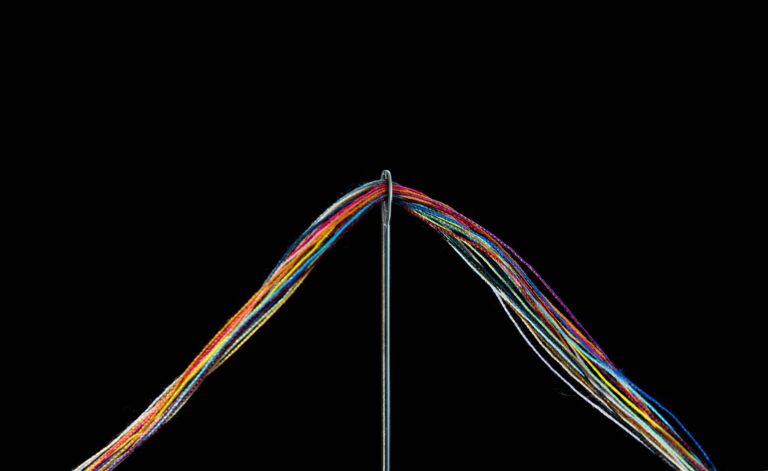Playing with coffee with some great results

It’s time to play with coffee and a variety of different fibres and textures to see just how great dyeing with coffee can really be.
Playing with Coffee
Now that we know all of the basics of fibre preparation for both wool and cotton, I thought it would be a good idea to see how well coffee can dye a variety of different craft supplies as a bit inspiration for everyone’s varying art and craft projects.
Coffee is such an easy thing for everyone to get and is a great way to explore natural dyeing in an easy and cost effective way. So lets start playing with coffee.
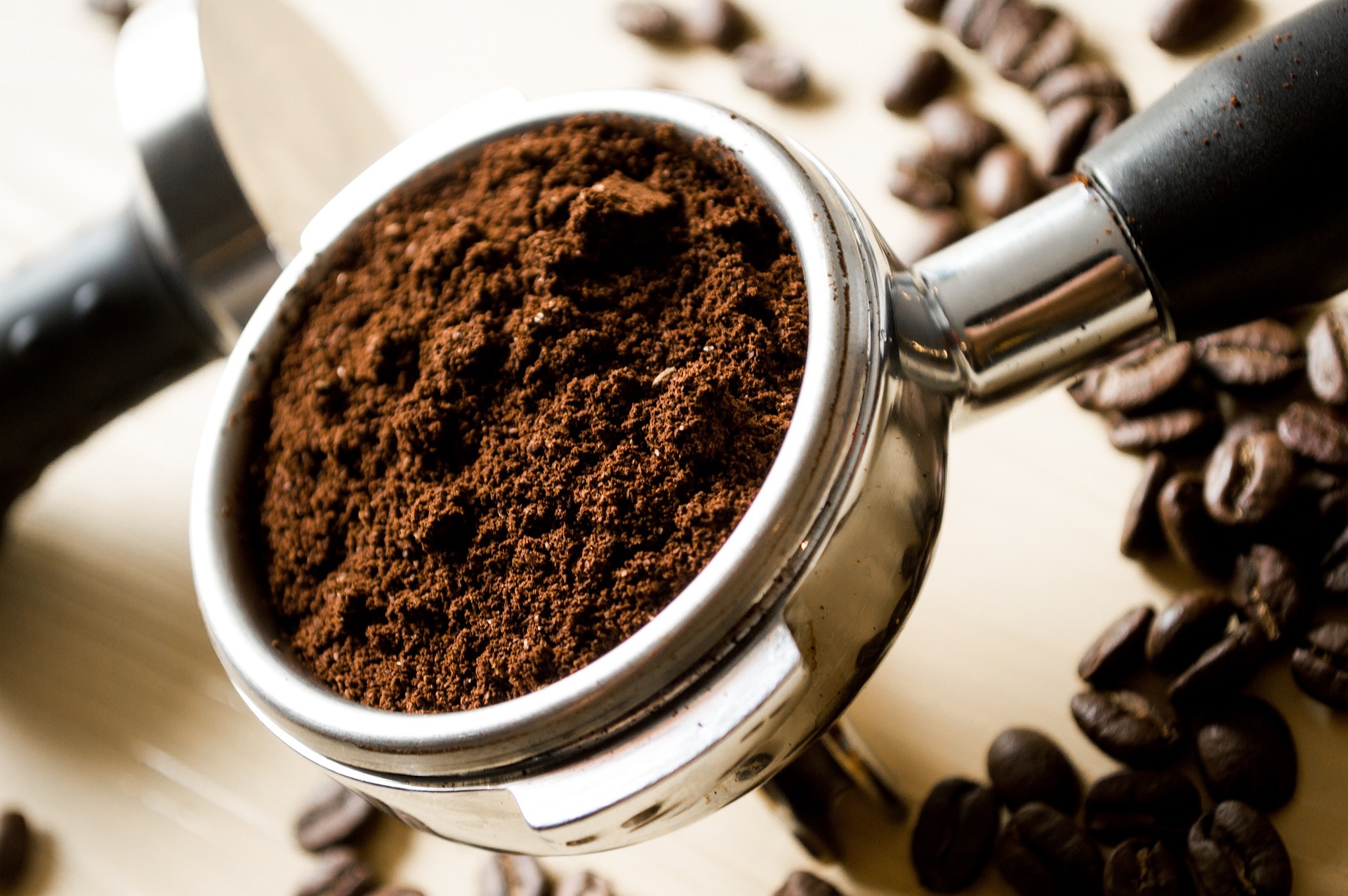
Safety Note
Always ensure when dyeing of any nature, to keep all saucepans and utensils used in the process, separate from your general cooking supplies. You do not want to cook with anything that has been used to mordant or naturally dye your fibres. You should also wear gloves and a mask while handling your chemicals.
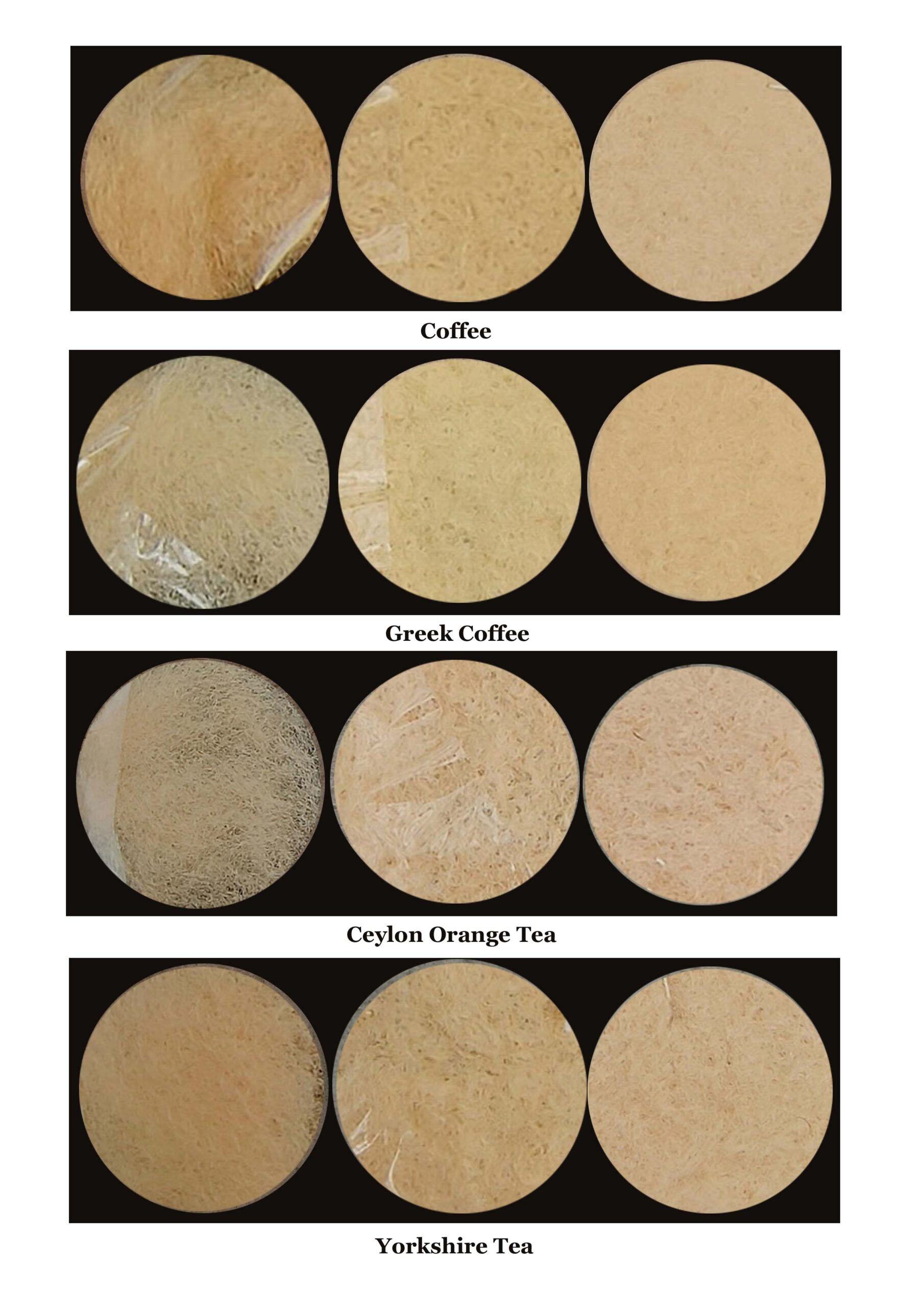
Recap of previous posts
We first looked at dyeing with coffee in conjunction with tea. In this instance we have used 2 different types of coffee on wool roving that was then turned into felt. The last circle in each row is after 4 weeks in the hot australian sun.
The wool roving had been pre mordanted with alum and solar dyed with coffee. As you can see the results came out really stable in regards to washing (during the wet felting process) and the sun test.
If you would like to see how this experiment was done click below.
We then looked at using no mordant on wool and also using iron water as a mordant. Again we had some great results with no fading during felting or the sun test.
If you would like to see how this experiment was done click below.
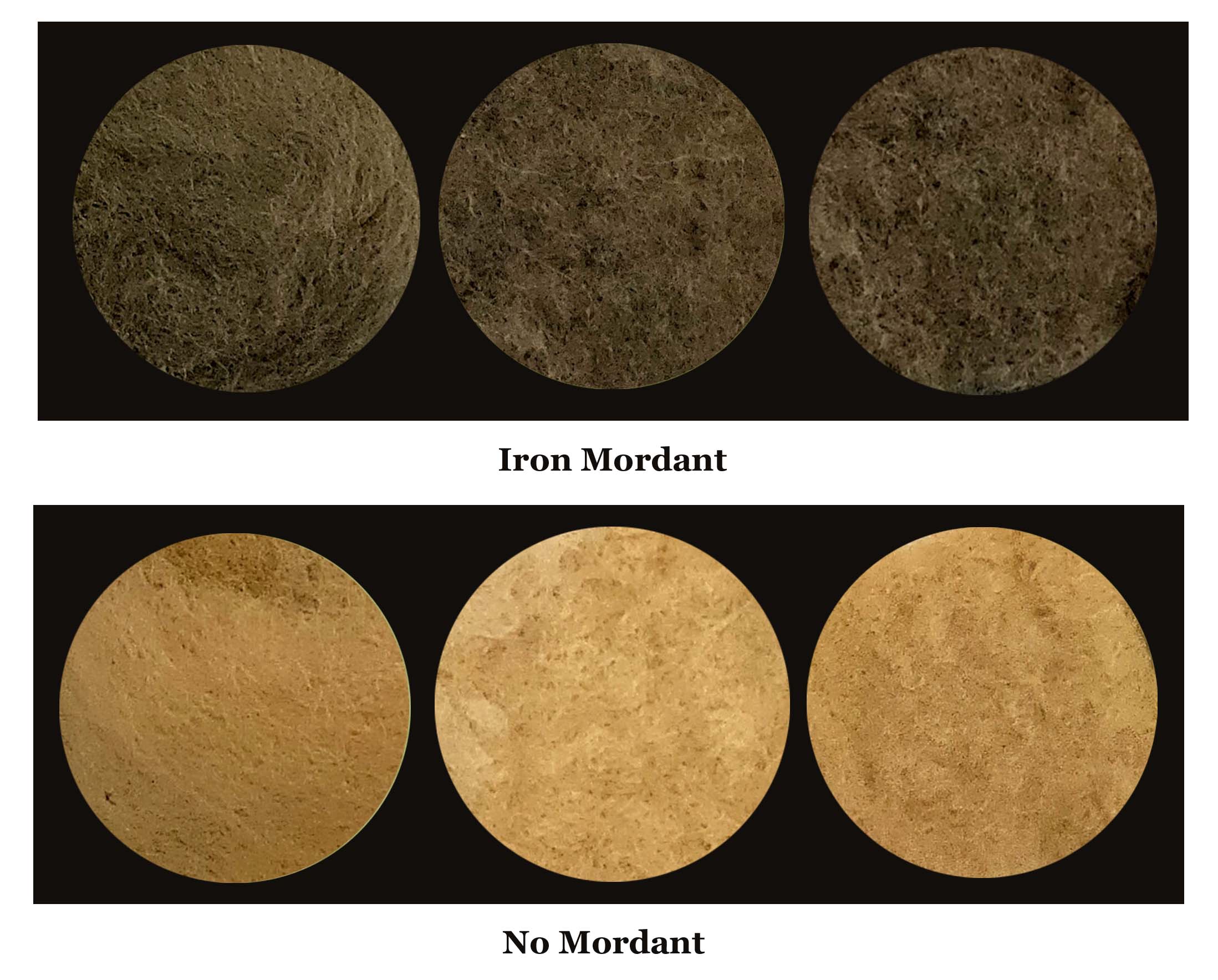
Playing with coffee on Wool Threads
This first selection of threads are 2ply merino wool. They were prewashed but were not mordanted. I wanted to see in this experiment how much coffee was the best for me to use. So I set up an experiment using three different ratios.
1:1 grams of coffee to WOF (weight of fibre).
1:2 grams of coffee to WOF and
1:3 grams of coffee to WOF
As I was dying 4g of thread this meant 4g, 8g and 12 grams of coffee respectively.
The fibres were solar dyed the same way that the previous experiments for 1 week.
After I finished the first lot of threads I then put in another batch for an exhaust dye bath. This meant using the same dye baths I added another 4g of thread.
The first row of threads is the initial dye bath with the 2nd row being these threads after 4 weeks in full sun. The third and 4th rows are the same but for the exhaust bath.
I was really happy with all of the results but found the least amount of sun fading being the 1:2 and the 1:3 ratio for the initial baths. There is really no difference in the before and after sun test. The exhaust bath did have a little more fading than the initial bath but depending on what your final project will be and how much sun it would get, it really wasn’t that bad.
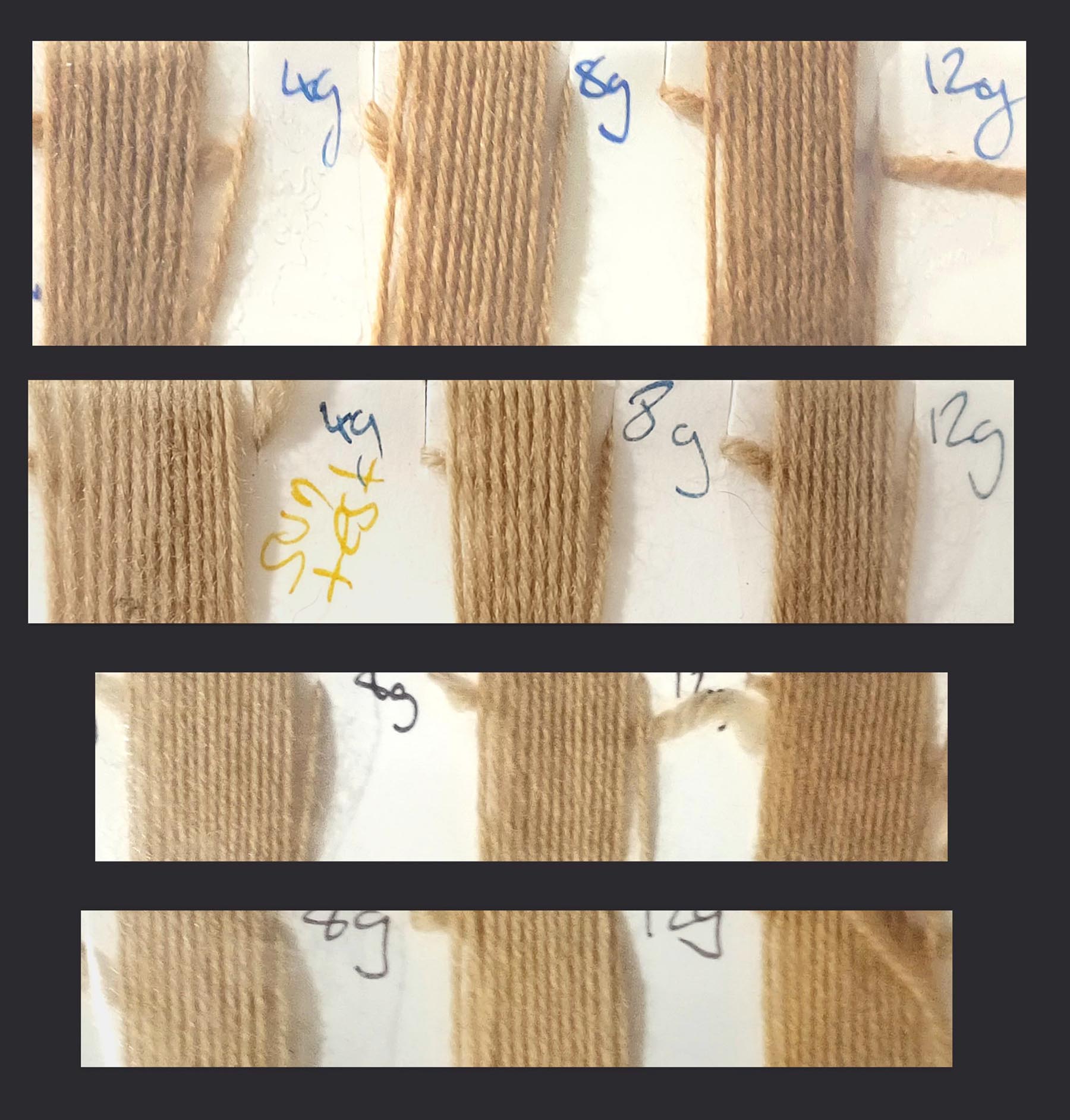
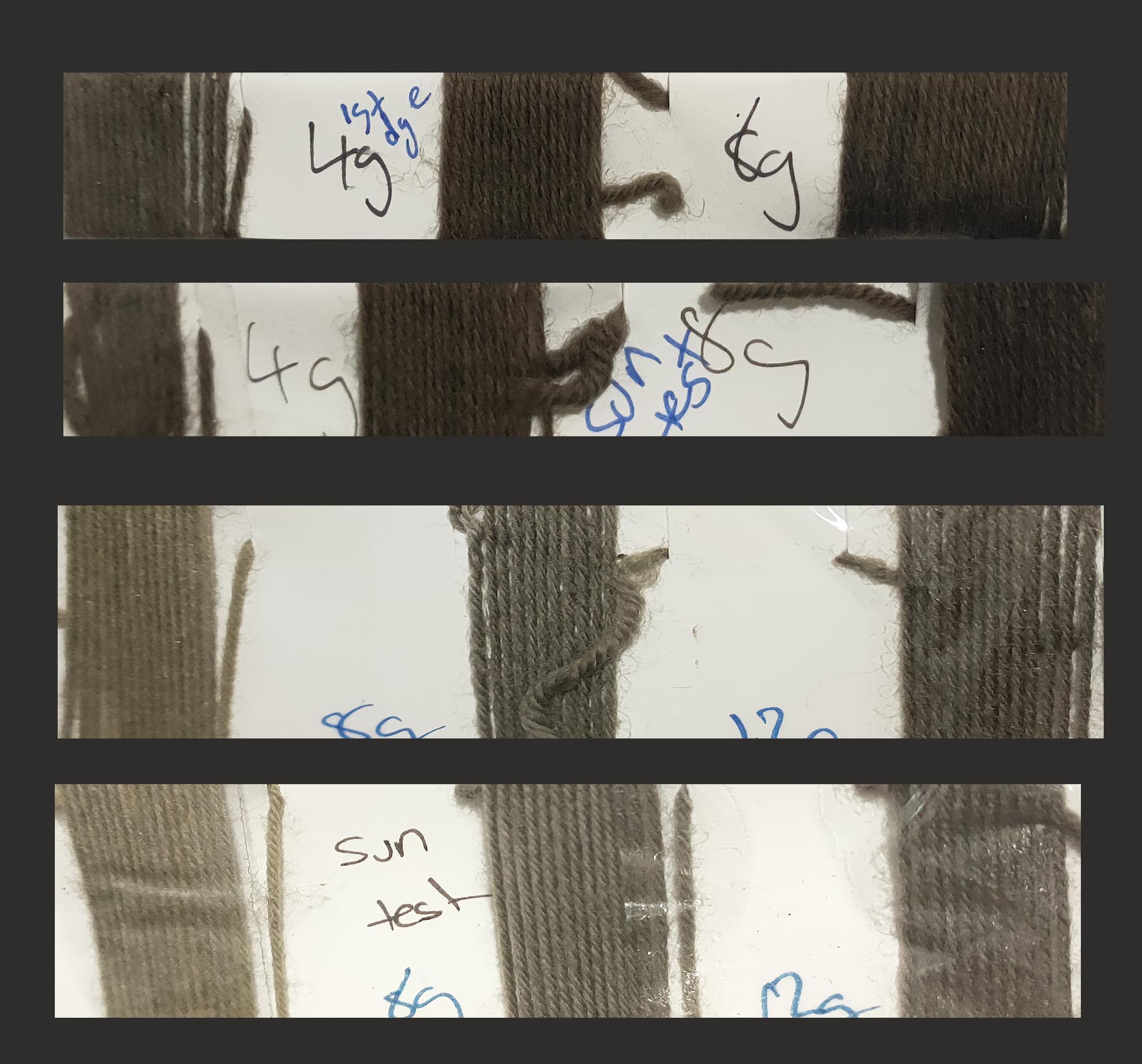
Here we have the exact same test as above. The difference is the mordant used on the threads before dyeing. Iron water has been used to achieve this lovely dark brown.
The first 2 are the initial dye bath with the results of the sun test underneath. The last 2 are the 4th exhaust bath with again a 4 week sun test underneath.
The results speak for themselves. Little or no fading with the sun test and some lovely colours for wool embroidery to choose from.
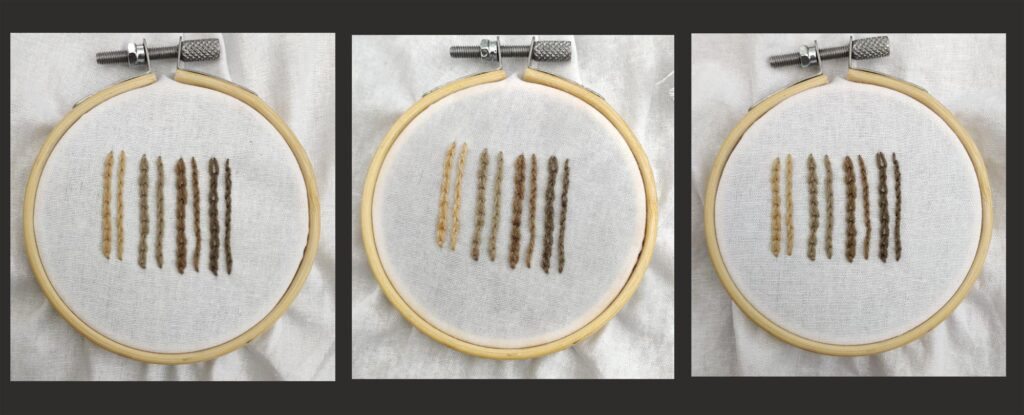
With this experiment I wanted to check the colour fastness of the wool threads. The colours are a coffee with no mordant, coffee with iron exhaust dye bath, coffee with iron initial dye bath and what I call a double shot. This is an iron mordanted thread that was dyed with coffee, washed and dried and then dyed with coffee again.
The first hoop is the initial embroidered threads with chain and split stitch. The 2nd hoop is when the embroidery has been sprayed with water. The last is the same threads are after being hand washed with a gentle detergent, and then dried.
I was really happy to see no bleeding at all! Playing with coffee has really paid off with some beautiful wool threads that will be great to embroider with.
Playing with Coffee on Cotton
Next it was time to play with some cotton.
The washing and mordanting process is different for cotton than wool. Both of these colours were pre washed and then mordanted with alum.
If you would like to see how this was done please click on the links below.
The pieces of fabric were then solar dyed with coffee in the same way as the wool roving above. A 1:3 ratio of coffee to WOF (weight of fabric) was used.
The darker fabric was then rinsed straight after coming out of the dye bath and placed in iron water for 40sec before before being rinsed again. Yep just 40sec was all it took.
The second circle of each row is after the fabric was left in direct sunlight for 4 weeks. Only a very slight amount of fading has occurred.
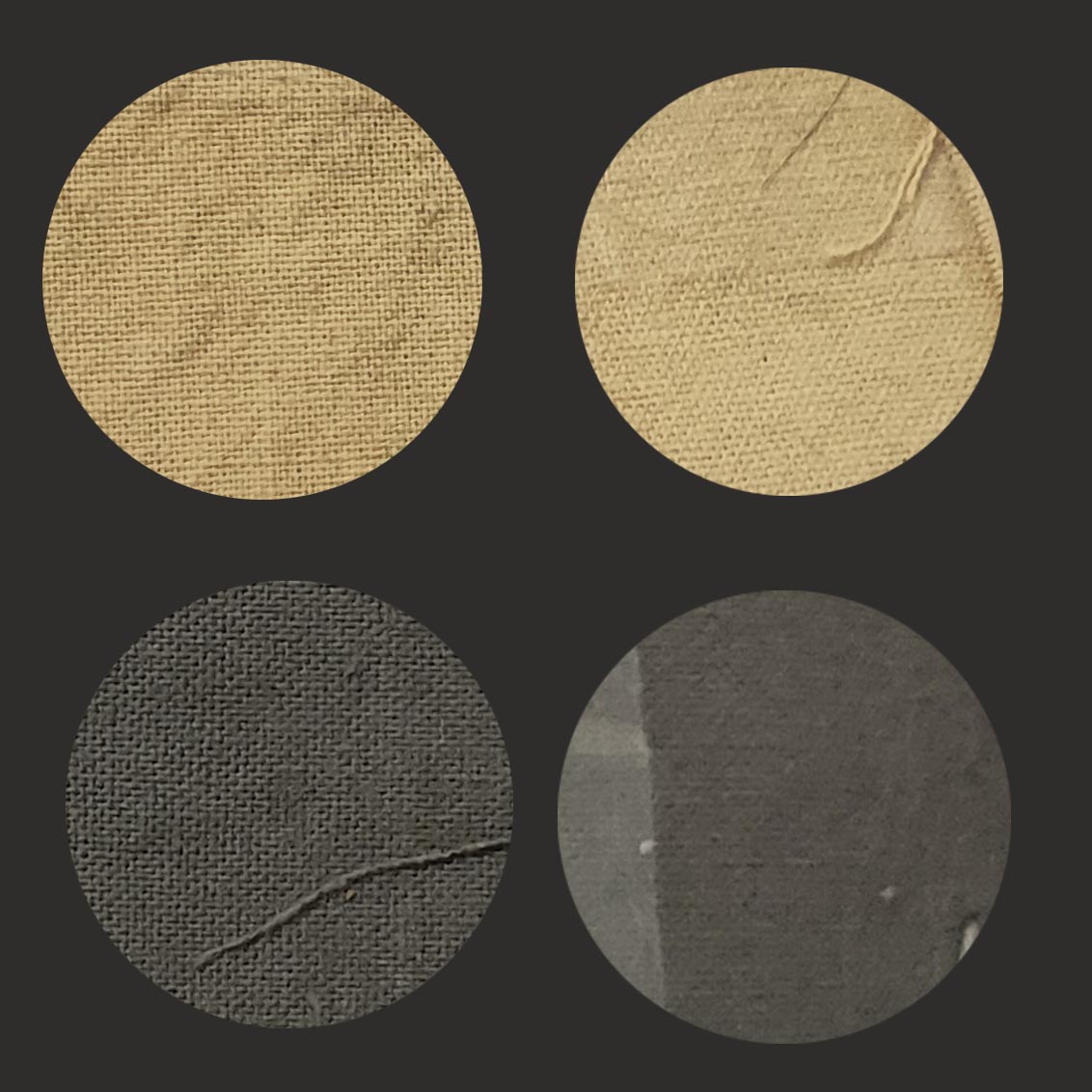
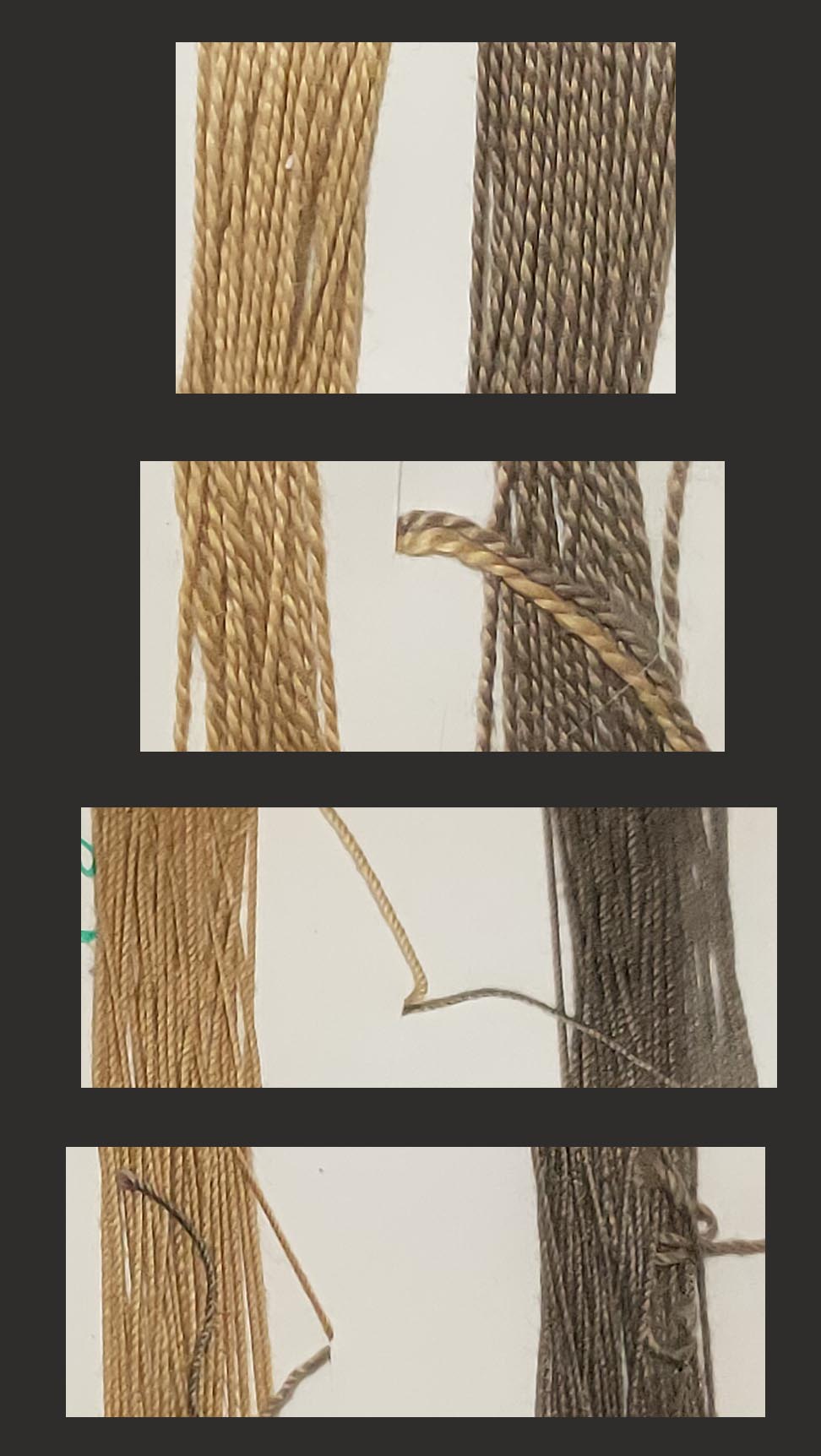
And next came cotton threads. In this instance I have dyed perle 8 and no. 40 cotton. They were done in the exact same way as the fabric with the same great results.
Why stop at threads? Here is a selection of cotton ribbons and lace all solar dyed in the exact same way. Once you start playing with coffee, you really can’t stop.
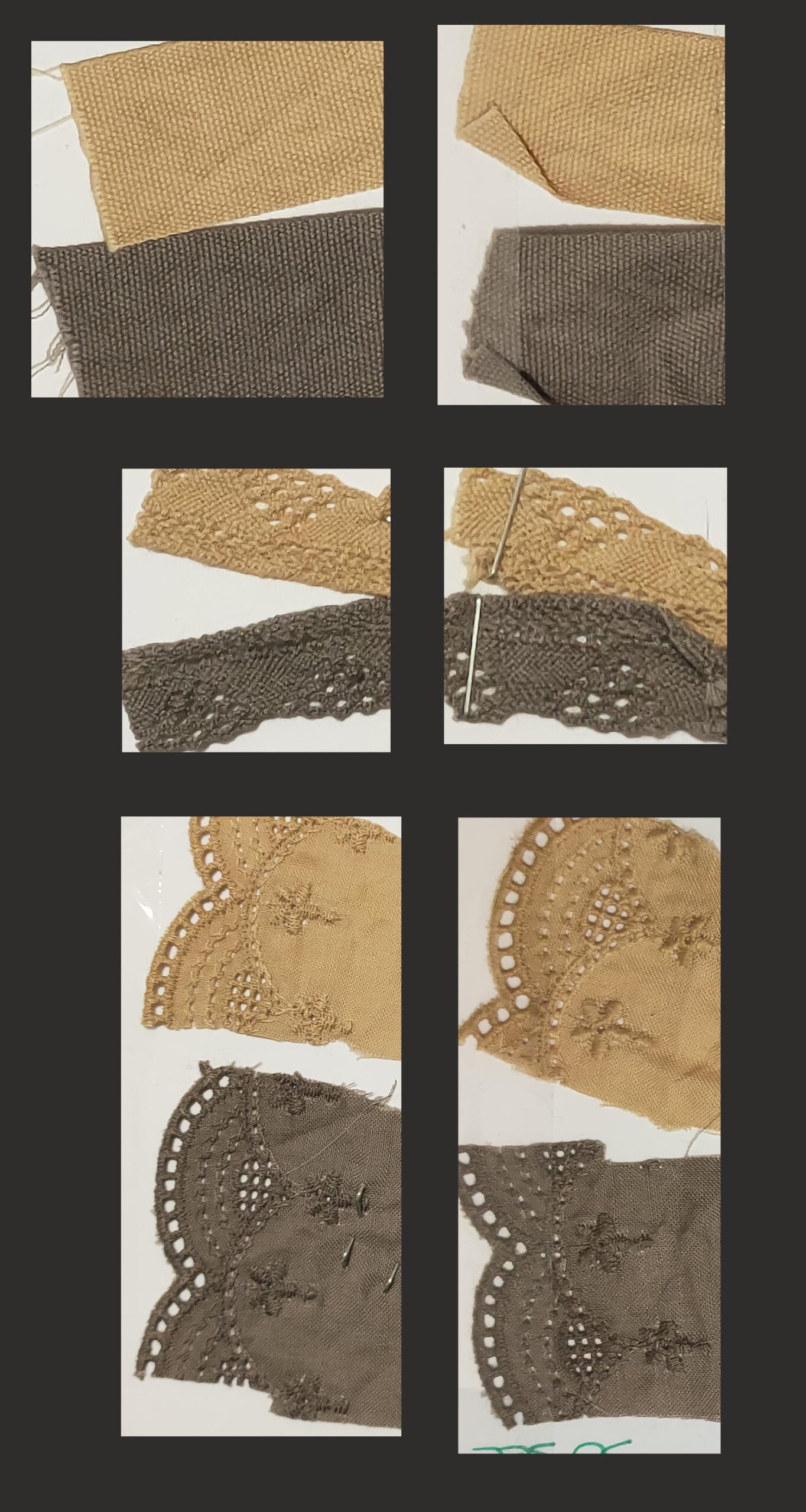
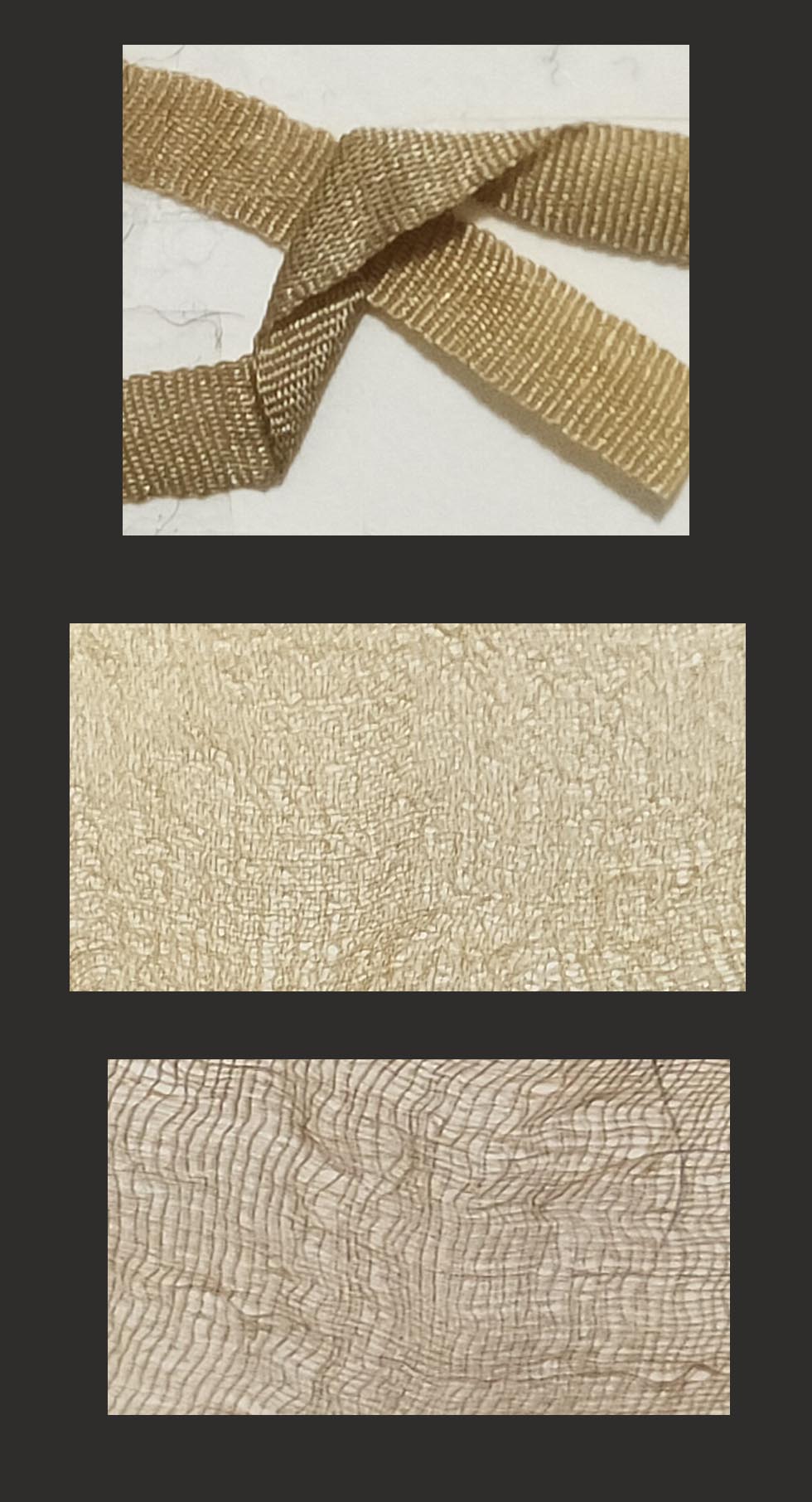
Playing with Coffee and Silk
And last but certainly not least, we have some silk. Silk ribbon, chiffon and organza.
Silk, as another protein fibre, is treated exactly the same as wool. Both with the washing and mordanting. Again we have great results with a variety of colour.
All together coffee has been a great natural dye to play with. It seems to dye any natural fibre easily and has great sustaining qualities. Why not give it a go?
Join us on Instagram www.instagram/DyetoCraft
Etsy Shop Now open
If you like the idea of using organic naturally dyed threads in your craft but just don’t have the time, come and have a look at our Etsy Shop where you will find an array of beautiful colours provided by nature.
